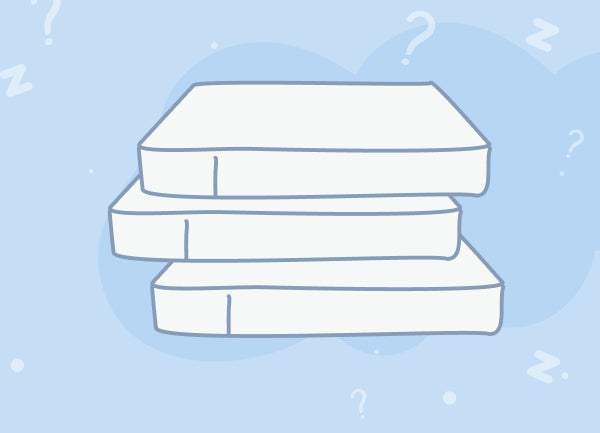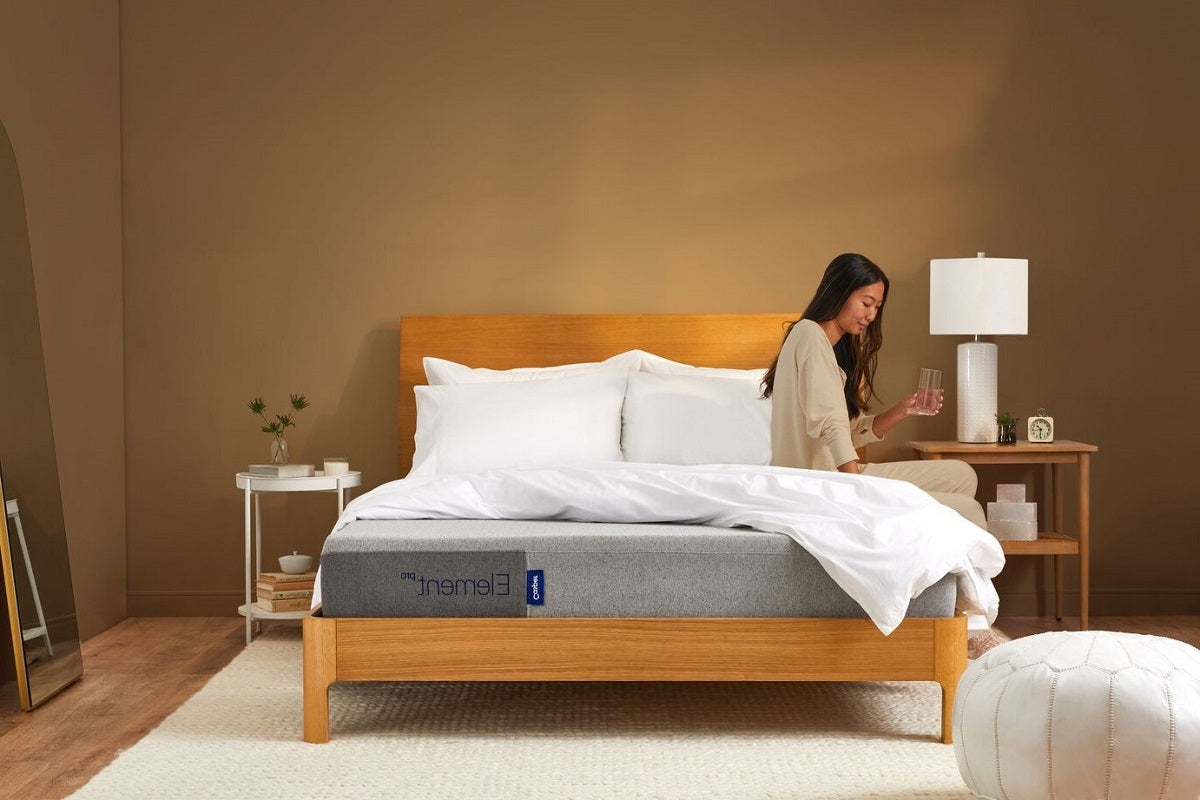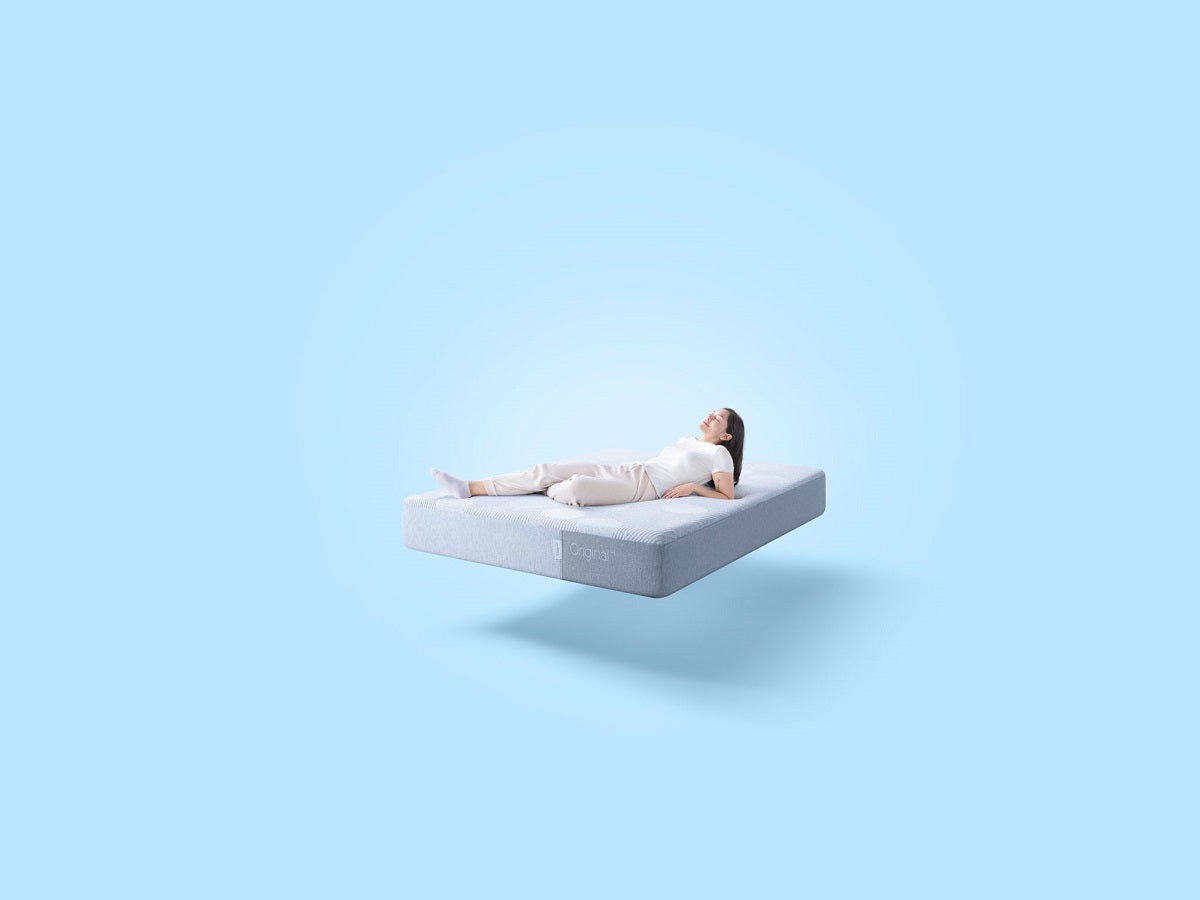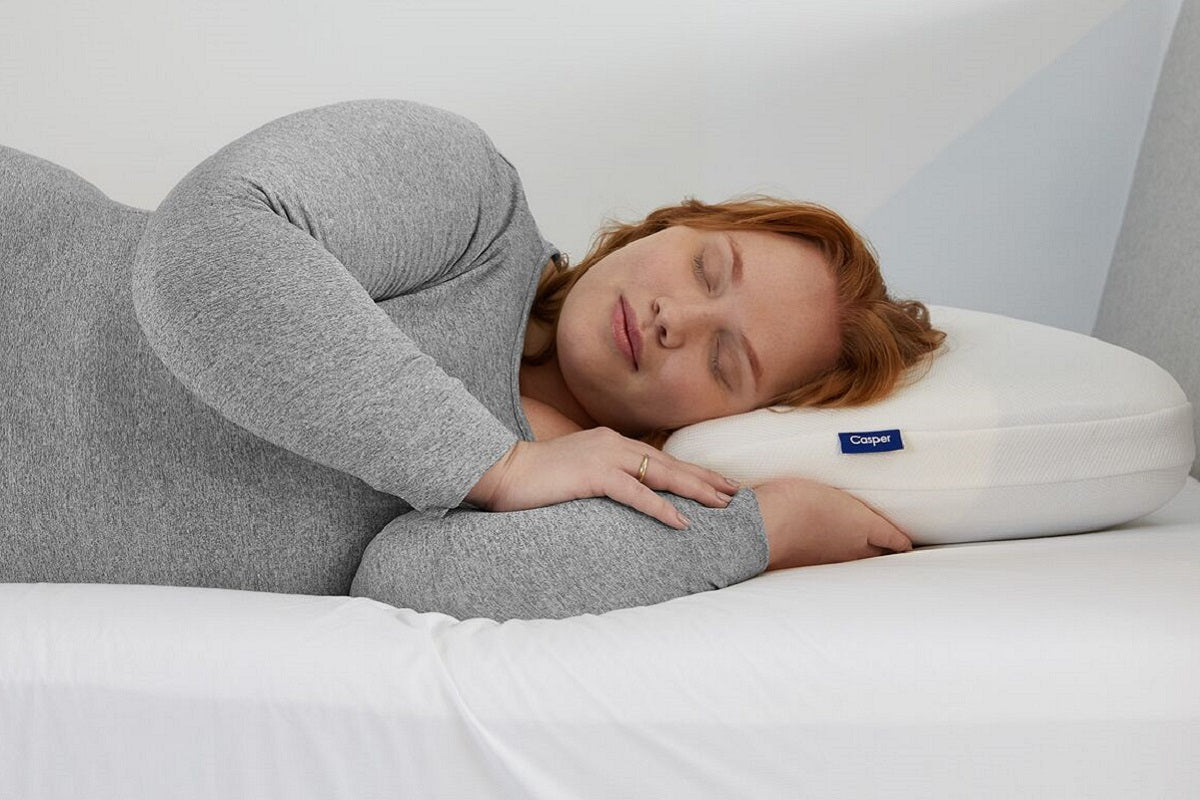Updated 05/24/2024
For many of us, travel can be one of life’s great joys, taking us to untold adventures and new horizons. But as anyone who’s ever encountered jet lag knows, travel can also take a toll on your mind and body.1 Lengthy stints at the airport, uncomfortable flights, and ventures into new time zones can disrupt your circadian clock and sleep cycle before, during, and long after your trip.
Thus, despite any excitement you may have about your journey, it’s not uncommon to spend a few hours staring at the ceiling because you can’t sleep before travel or after you arrive.
5 Ways Travel Can Impact Your Sleep
What do you do if you can’t sleep when traveling? How can you ensure you still catch enough winks as your travels unfold? By knowing how travel affects your ability to achieve deep, restful sleep, you can plan ahead and take positive sleep health steps to prevent these pitfalls. Keep reading for a comprehensive guide on how travel impacts your sleep pattern and sleep schedule and what you can do to ensure better sleep quality.
#1 Travel Fatigue
Whether by plane, train, or automobile, even travel you’re excited about can be both physically and mentally taxing. Travel fatigue is the culmination of internal and external stress, two hazards that are nearly impossible to avoid while on the road.2
Possible stressors while traveling may include:
- Fear of flying or other methods of traveling
- Anxiety about issues arising during the trip
- Motion sickness
- Travel delays
- Inability to get good sleep while traveling
- Irregular or unhealthy food and drink consumption
- Uncomfortable seating positions
- Dehydration, bloating, constipation, and respiratory tract issues associated with pressurized airplane cabins
These factors and more can drain your energy and disrupt your normal circadian rhythm and sleep cycle––even before your trip. But you don’t just have to lie down and take it. Long flights, trains, and car rides present excellent opportunities for travelers to sleep off their travel fatigue. That said, many find it difficult to sleep in upright seats and loud, crowded environments.
#2 Jet Lag
When you’re traveling between time zones, it naturally takes time before your internal clock syncs with your new time zone. The irregular sleep patterns that occur during this adjustment period is referred to as jet lag.3 If you can’t sleep after a vacation or are having trouble sleeping on vacation in a new time zone, jet lag may be the culprit.
Symptoms of jet lag include:
- Sleep disruption, such as insomnia, early waking, or excessive sleepiness
- Daytime fatigue
- Difficulty concentrating or functioning at your usual level
- Stomach problems, such as constipation or diarrhea
- Feeling generally unwell
- Mood changes
#3 Schedule Changes
Even when jet lag and travel fatigue aren’t keeping you up, a general change to your bedtime routine can disrupt your sleep cycle. For example, while on vacation, you may go to bed much later than you’re normally used to. Your body may not respond to that right away, instead waking up at your normal hour. The result is fatigue throughout the day.
The same effect can occur when you overload your day with activities. Overstimulation and insufficient time budgeted for sleep can negatively impact sleep schedules and sleep health.
#4 Changes to Diet and Exercise Routines
A chance to break away from your regular routine is often a welcome part of travel. That said, routine is a big part of your sleep cycle—especially when it comes to diet and exercise. When you indulge in food more and partake in exercise less, you may experience a decline in the quality of your sleep and overall energy levels.
#5 Unfamiliar Sleep Conditions
Comfort is one of the most important aspects of quality sleep. At Casper, we prioritize comfort by providing a wide range of mattresses tailor-made for your body’s needs. Unfortunately, you may not always find that same comfort from your mattress on the road.
No matter the quality of your hotel room’s mattress, familiarity is a huge part of comfort. Familiarity goes far beyond just comfort, too––lighting, temperature, noise, and much more are all crucial factors in determining your comfort in a new environment. Especially on your first night, it can be difficult to sleep in an unfamiliar setting. This is called the “First Night Effect” and is understood to be an evolutionary survival trait.4

How To Sleep Better When Traveling
Traveling often brings excitement and adventure, but as we learned, it can also disrupt your sleep, leaving you feeling less than refreshed. Achieving a good night’s rest while on the go is crucial for maintaining energy levels and enjoying your trip to the fullest. Let’s explore some tips on how to sleep better when you’re traveling.
#1 Plan for Jet Lag
When most people think of sleep travel issues that crop up around the holidays, jet lag is usually the number one culprit. But with the right planning, there’s no reason jet lag should stop you from joining in on the family’s White Elephant festivities come sundown.
To beat jet lag and infuse your vacation with holiday cheer, keep the following quality sleep tips in your back pocket:5
- Stay hydrated – Move over, eggnog. Drinking plenty of water before and after a flight can counteract the dry air of the airplane cabin and even diminish jet lag symptoms once you land. Avoid spiked hot chocolate and mulled cider come dinnertime, too, as dehydration can seriously affect your ability to fall asleep at bedtime.
- Pre-shift your sleep schedule – You can get in the travel spirit early by anticipating the time shift and slowly adjusting your sleep cycle ahead of time. It usually takes around 24 hours per timezone for your body to acclimate, but you can do some of that work ahead of time by going to bed earlier in the days leading up to your trip. That way, once you land, you’ll be ready to soak in the holiday vibes.
- Embrace local time – The sooner you can set your clock to local time and start adjusting your eating schedule, the better. Encouraging your body to find its new rhythms will help you push through your jet lag and enjoy your vacation.
With these quality sleep tips, you’ll be ready to master jet lag in no time, making this year’s European family reunion the best one yet.
#2 Bring a Sleep Kit
You’ve spent your night belly-laughing with family and friends, snacking on delectable holiday treats, and sipping on the most scrumptious Christmas cocktails. As you cuddle into your flannel pajamas, you’re more than ready to drift off into a deep slumber, but the glowing Christmas lights and holiday music from the neighbor’s house turn your night into a dream scene akin to The Nutcracker.
To ensure your slumbers are comfortable, pack a sleep kit with all the bedtime essentials, including:6
- Melatonin to usher you into a deep, restful sleep
- Blue light-blocking glasses for before-bed scrolling
- Lavender-scented products or essential oils to support relaxation
Wondering how to get a quality sleep with a snorer on vacation? Add some earplugs to your kit to clear sleep-disrupting snores, music, and chatter from your sleep space. And every sleep kit needs a top-notch eye mask, too. Casper’s Snoozewear™ Sleep Mask is smooth and breathable, making every night an absolute dream.
#3 Travel Comfy
Holiday pajamas don’t have to be reserved for your family gatherings. Comfort is an underrated part of better sleep—in fact, it’s so underrated that scientists have learned that the first night of sleep in a new place is usually so bad that the data is thrown out when conducting sleep studies.7
To make any holiday destination feel like home, make sure you’re traveling in comfort the whole way there and consider the following:
- Wearing comfy clothes – You might have a suitcase full of festive looks packed for your dream holiday vacation, but we recommend saving those for the destination and opting for comfort on the way there. Casper’s Snoozewear™ has exactly what you need to relax on the long plane ride. Our Blanket Robe will make you feel like you’re tucked in your cozy bed the whole trip, so that you can bring the comfort of your room to the airport, sky, and beyond.
- Reclining your seat – Don’t be afraid to lean back and kick your feet up. Whether you’re on a bus, in a car, or on a flight, leaning back will help improve both the quantity and the quality of the sleep you get since you’ll be more relaxed and comfortable as you snooze.
- Bringing your own travel pillow – The holiday fun is only beginning once you get to your grandmother’s house, but you’ll still have to sleep in a new travel bedroom for the duration of the holiday season. That said, when you bring your own travel pillow, you can make Grandma’s guest room feel more comfortable and cozy, making this season the ultimate sleep vacation.8
#4 Eat and Drink Right
Cookies, sugarcanes, and marshmallow-filled cups of hot chocolate might be holiday season staples, but you’ll likely want to hold off on the sweets until you reach Grandma’s house. That’s because what you eat and drink directly affects your ability to sleep soundly throughout the night.
In fact, a study found that higher amounts of sugar correlated with poor sleep quality.9
That said, save the indulgences for the actual holiday and fill your travel day with practices to encourage much-needed shut-eye:10
- Avoid caffeine – While you might hear gingerbread lattes and peppermint mochas calling your name, you’ll want to avoid hitting them too hard before you travel. Drinking caffeine is a surefire way to stop oncoming sleep in its tracks. It’ll also send your sleep cycle spiraling, which can disrupt your restful sleep during travel and during your vacation.
- Don’t overeat – You might think that a heavy meal will make you feel drowsy, but eating overly large meals can actually lead to bloating and constipation, which can make you too uncomfortable to fall asleep peacefully. Spare yourself the gastric trouble and make sure to eat light before and during your trip—then indulge in all the turkey and stuffing come dinnertime.
- Eat balanced meals – A well-rounded diet is critical for good sleep because the nutrients you receive from fruits and vegetables can impact your sleep rhythms. Fill your travel day with fruits, vegetables, and whole grains to balance your journey with nutrition that keeps your body and sleep pattern healthy.
#5 Keep Travel Stress to a Minimum
You might have a perfect picture of your sunny island getaway in mind, but the idea of navigating large crowds, flying on a plane, and finding additional transportation is keeping you up at night.
Travel anxiety is incredibly common. Fortunately, mitigating or overcoming travel-induced stress is possible if you take the right steps to plan ahead.
To help squander sleep-squashing anxiety, you can:
- Meditate – It’s a classic for a reason. Meditation and breathing exercises are effective ways to calm your mind and body at the moment and recenter yourself before and during travel. Because meditation relaxes the body, it may also help you more easily slip into slumber, whether you’re in a plane, car, or your grandma’s bed.
- Plan ahead – If the hectic rush to the airport or bus stop is what keeps you up the night before, you can alleviate your fears by creating a list of to-dos and knocking out stressful responsibilities beforehand, such as arranging transportation. Pre-pack for your trip days in advance to ensure you’ll have everything you need, and create an itinerary the night before, so you don’t run into any last-minute surprises.
- Pack sleep medication – For some, travel anxiety can pile up like a present under a tree. To ease the madness of holiday travel, sleep medication can deliver much-needed relaxation and rest. You may be groggy come landing, but you’ll leave your worries in the sky.
With these sleep tips, you’ll be ready to focus on the upcoming holiday fun and put any travel anxiety behind you.

Enjoy Your Best Sleep Yet with Casper
The holiday season is one of the best times of the year, but you don’t want to leave it more tired than when it started. By bringing your own sleep kit, planning for jet lag, and tackling anxiety, you can stay well-rested no matter where your travels take you.
At Casper, we have a bevy of cozy sleep products to accompany you on your holiday vacation.
Equip your plane ride with a bright light or sunlight-blocking sleep mask and blanket robe, and cozy up next to the fire with a throw blanket once you arrive. No matter your plans, Casper is here to infuse every holiday season with comfort and coziness.
Sources:
- Mayo Clinic. Jet Lag Disorder. https://www.mayoclinic.org/diseases-conditions/jet-lag/symptoms-causes/syc-20374027
- Clinical Journal of Sport Medicine. Jet Lag and Travel Fatigue: A Comprehensive Management Plan for Sport Medicine Physicians and High-Performance Support Teams. https://journals.lww.com/cjsportsmed/Fulltext/2012/05000/Jet_Lag_and_Travel_Fatigue__A_Comprehensive.11.aspx
- National Institute of Health. Night Watch in One Brain Hemisphere during Sleep Associated with the First-Night Effect in Humans. https://pubmed.ncbi.nlm.nih.gov/27112296/
- Harvard Health Publishing. Travel tips: Ways to minimize jet lag. https://www.health.harvard.edu/newsletter_article/travel-tips-ways-to-minimize-jet-lag
- Forbes. 4 Ways To Sleep Better When You Travel, According To Sleep Experts. https://www.forbes.com/sites/jonisweet/2022/04/20/4-ways-to-sleep-better-when-you-travel-according-to-sleep-experts/?sh=6a63611775e2
- Sleep Advisor. 13 Ways To Sleep Better While Seeing the World. https://www.sleepadvisor.org/sleep-and-travel/
- American Journal of Lifestyle Medicine. Relationship Between Added Sugar Intake and Sleep Quality Among University Students: A Cross-sectional Study. https://www.ncbi.nlm.nih.gov/pmc/articles/PMC8848117/
- Sleep Foundation. Travel and Sleep. https://www.sleepfoundation.org/travel-and-sleep













